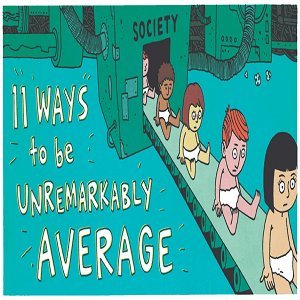
by Joseph Graves | Jan 20, 2014 | 30 Day Blog Challenge, Workshed News
Ways to be Average
Todays post is a continuation of yesterday’s theme of being realistic. Really this is a 2-for-1 repost of a pair of posts by Zen Pencils, where he creates comics from inspirational quotes.
The first is a quote from Chris Guillebeau about 11 ways to be average. In it, he reveals the formula for living a boring and unremarkable life. For those unfamiliar with Chris, he is a Portland resident, author of “The Art of Non Conformity” and “The $100 Startup,” host of the annual World Domination Summit, and has nearly accomplished his goal of visiting every country on the planet.
Click the images to see the entire comic.
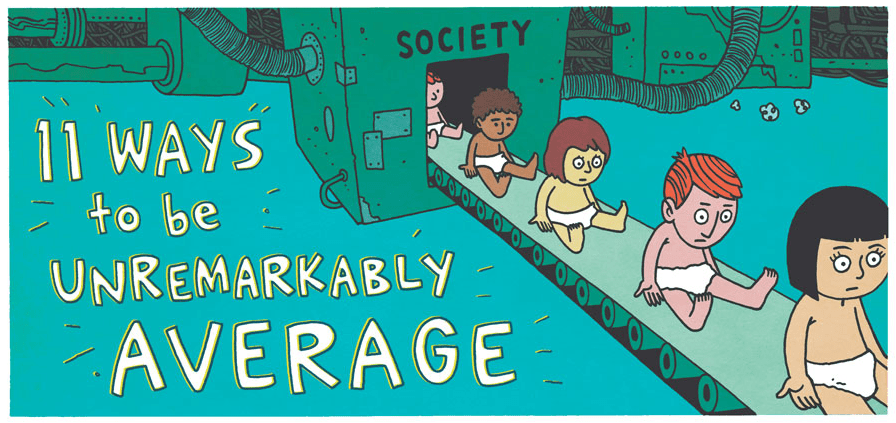
The Timing Always Sucks
It’s almost stating the obvious, but it’s true that for the most important things in life the timing can always be better. To put it another way, there will always be a reason not to do something; especially stuff that really matters. The second quote is by Tim Ferriss from his first book, “The Four Hour Work Week.” Tim is know for his “lifestyle hacking” (among other things), and like him or not, it’s hard to ignore his ability to distill things down to their essence. Be it a skill or life philosophy.
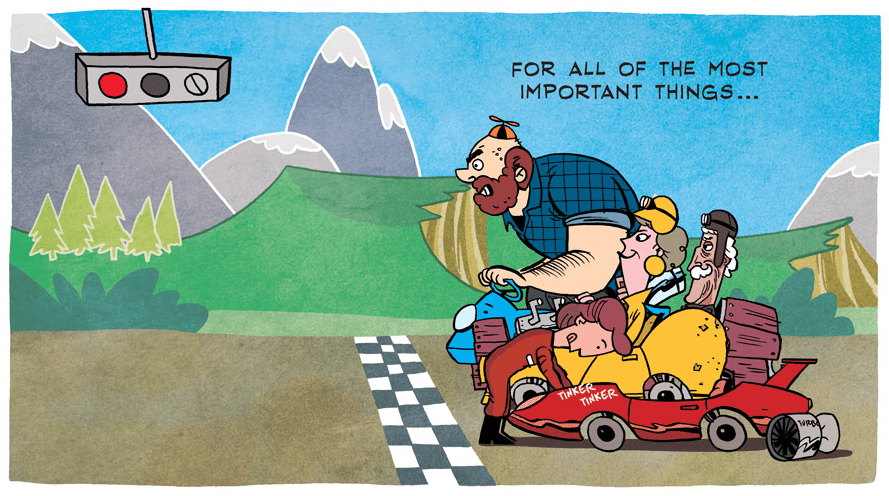
It’d be easy to dismiss what both of these guys are saying, if what they were saying wasn’t so important to living a life worth living. We are not automatons whose only function is to perform some mundane task with ever increasing efficiency.
Do something Interesting…then tell us about it. You never know who or what you might inspire.
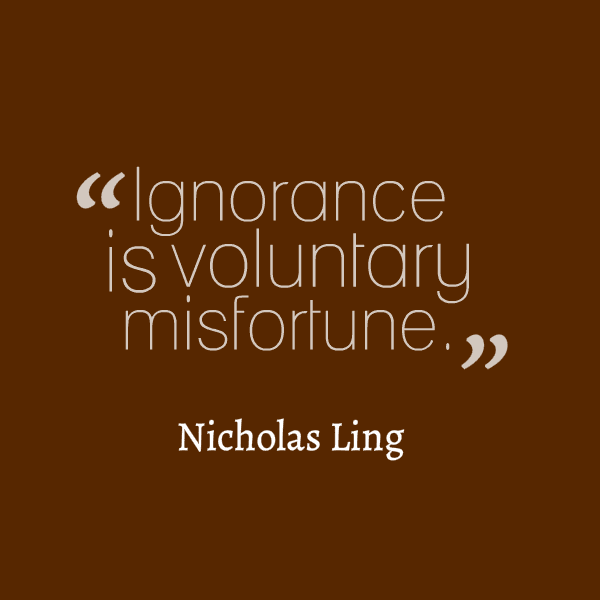
by Joseph Graves | Jan 5, 2014 | 30 Day Blog Challenge, Articles
How to choose?
I collect quotes, so I anticipated selecting a single favorite might be more difficult than it turned out to be. In order to narrow the range of initial possibilities from my spreadsheet, I wanted to select a quote that applied to a broad range of circumstances. As soon as I set that one criteria in my mind…I knew immediately what my quote was.

Ignorance is voluntary misfortune.
Short and sweet.
Misfortune is defined as simply being bad luck, and why should we suffer unnecessary misfortune as a result of self imposed ignorance? This quote reminds us that through our own efforts to become more informed, we can avoid, or at least mitigate bad things from happening.
The implication is that we have a choice. Ignorance or understanding. Through education (not to be confused with schooling, but that’s another post) we can turn what may have been voluntary misfortune into opportunity. Or, as Seneca the Younger put it:
Luck is a matter of preparation meeting opportunity.
This is my favorite quote because it reminds me of how important being informed is. Ignorance may be bliss for a while, but it can also end in misfortune.
What is your favorite quote? Please share it in the comments.
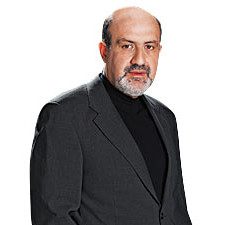
by Joseph Graves | Jan 3, 2014 | 30 Day Blog Challenge, Articles
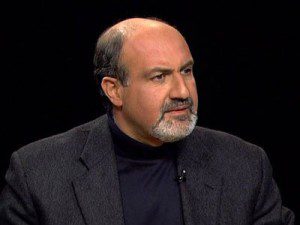 A Changed Man
A Changed Man
There are many ways we are influenced in life and in business. It has been my experience that the most profound changes have been inspired by people I have known only through published work (books, interviews, etc). Individuals who caused me to question my assumptions and reevaluate my beliefs thereby allowing me to arrive at new understandings, be aware of my biases, and continue the process of refinement. The list is long, but in this post I’d like to focus on someone who was (and still is) key in shaping my thinking. He is Nassim Taleb, the author of 5 books, a philosopher, professor, a statistician, a former options trader, adviser to the International Monetary Fund, and an outspoken critic of the financial industry.
Like many people, I was first introduced to Taleb through his book, “The Black Swan” in 2007 (although unlike some of his critics, I actually read the book). There was one phrase in particular that created a paradigm shift in my thinking: “absence of evidence, is not evidence of absence.” In other words, just because you can’t see something (or quantify it), that does not mean it doesn’t exist. It’s been over 6 years since first reading those words, and I still feel the weight of their implication.
Blissfully Ignorant No More
His books (The Black Swan and Fooled by Randomness) opened my mind to the asymmetry of the risk return relationship in my business (investing) and life. Phrases within the financial industry became absurdities, and I soon developed a skepticism of commonly espoused strategies and instruction. It was this skepticism that led me into other bodies of knowledge and research that touched my life. Economics, politics, asset allocation, agriculture, the environment, parenting, the principles were consistently applicable, resulting in errors due to a lack of intellectual honesty. If you can’t accept or even consider that you might be wrong, you won’t look for alternatives.
His latest book, “Antifragile: Things that Gain From Disorder” is among the most insightful and directly applicable books I’ve read. The opposite of fragile is not robust…to survive is not enough. The opposite of fragile is antifragile. To benefit from adversity, volatility, and the like. As a parent, I can use an antifragile philosophy to prepare my children for adulthood, in business I can use it to turn a previous weakness into strength and benefit from tribulations.
NNT talks to the Stanford ETL Class
Nassim Taleb is someone I admire for his insight, commitment to excellence, and his ability to remain true to himself and his beliefs in spite of enormous financial success. Lately, he has also assumed the mantle of exposing charlatans and calling a spade a spade. It’s one thing to point out fallacies…quite another to name names. He sums it up nicely with his first ethical rule:
If you see fraud and do not say fraud, you are a fraud.
He follows it up with a promise:
If I call someone a dangerous ethically challenged fragilista in private after the third glass of Lebanese wine (white), I will be obligated to do so here.
Taleb is an interesting combination of a brilliant mind with a well read education and a practitioner who is acting on his philosophy. I’m thankful for his insights and inspiration.
How About You?
Who do you admire?
What books have inspired you?







